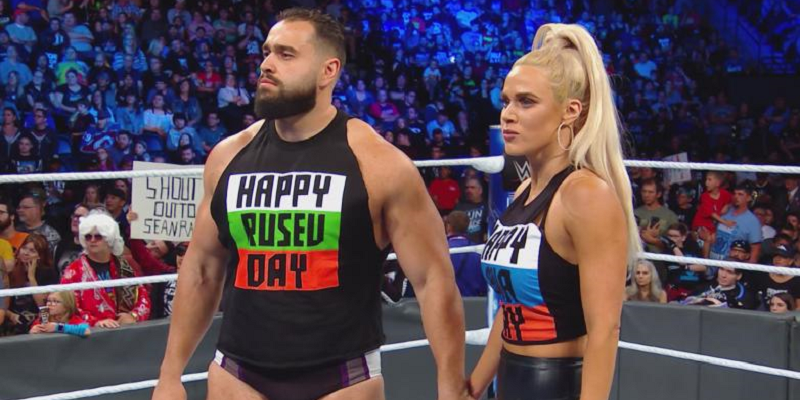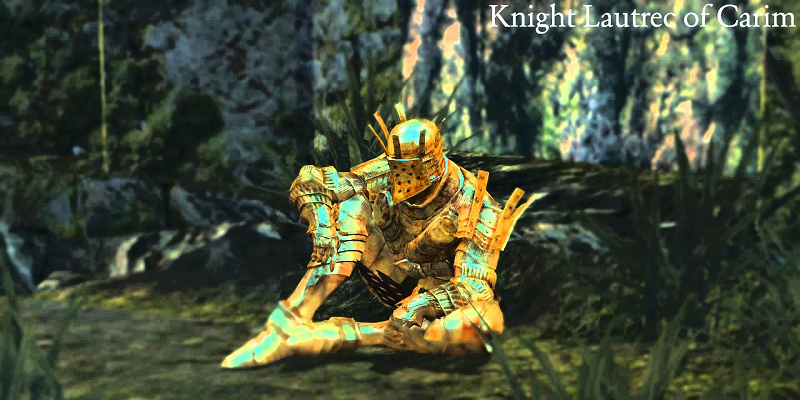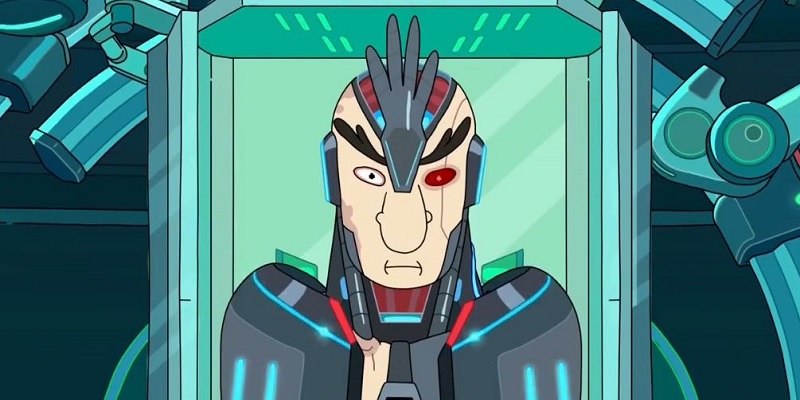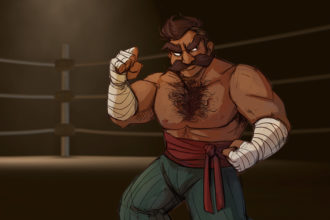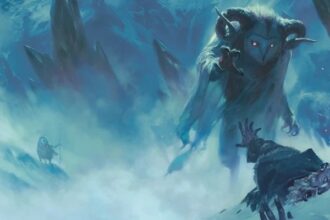How Do We Define Character Success?
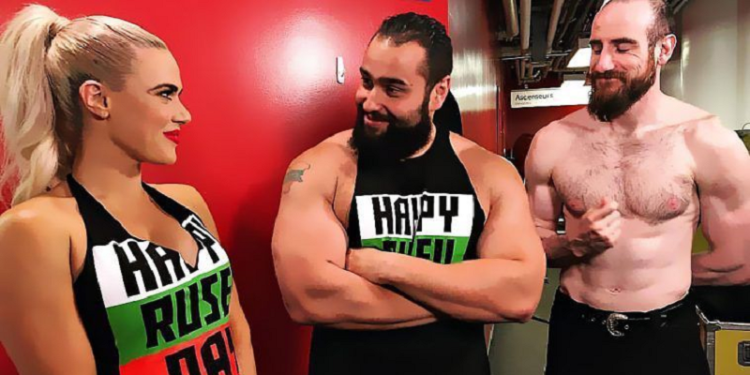
As one might suspect when taking care of a tiny new human, I do not have a lot of time to actively run and play tabletop games, at the moment. When I’m not making sure my children don’t wander into some danger like the worst SIMS characters, I’m trying to make sure my job doesn’t explode in a fiery mess that makes international news. In short, as much as I love carving out a few hours to roll some dice, it’s just not happening. However, I can’t help but constantly think about tabletop games…and wrestling. Yes, this is a wrestling post. Deal with it, deal with it, hashtag deal with it. This mostly stems from reading several threads, articles, and posts that amount to, “the longer you play any RPG, the more powerful you should become – that’s the defining characteristic of an RPG.” This got me thinking about the fan-driven phenomenon in professional wrestling where if a wrestler doesn’t have a title run, they are considered to be failures or forgotten assets. Which leads me to ask, “how do we define character success?”
Some Background
Of the games I currently run, the goals of the characters and group as a whole vary. In the Al-Qadim game, the characters have a group goal of restoring the honor of their family – including repairing their crumbling family holdings. However, each character has independent goals – often at crossroads with their family. For example, one character wants to bring back the Jackal totem, another wants to create an item of lasting legacy dedicated to his genie “father,” and another wants to explore the dark secret within a forbidden kingdom that is his link to a strange prophecy. If the last character finds the prophecy and dark secret contends against the restoration of his family’s legacy – and who would ever make that a choice *pretend shock* – is he a failure if he chooses one over the other? I think most people would say no, as long as the choice was meaningful and driven by the character. Let’s look at it from another angle.
You gain power through class levels, equipment, world knowledge, and your social connections. You build a fighter to become a flashing-steel whirlwind of death. When you were a fresh-faced-killer-hobo-in-training, you mercilessly inflicted “freedom” on several goblin tribes – freeing them from their tyrannical rulers. However, as you advance in power and prestige, those goblins also advance in power and prestige. Instead of moving on to gnolls, elementals, demons, and slaadi, you always fight these goblins, and they are always difficult. Simultaneously, the villagers you are protecting ALSO scale upwards in level. Do you accomplish your goal of being a powerful fighter when your relative strength doesn’t vastly outpace your initial foes? I know many people who would argue you do not, but others would say you do. It’s an interesting discussion.
Our Hero is Born
Happy Rusev Day! On this, Rusev Day, I will tell you the story of Miroslav Barnyashev. Miroslav began a simple life, with one goal – to become freakishly strong, handsome, and athletic. Okay, his real goal was to become a professional wrestler within the WWE – World Wrestling Entertainment – wrestling promotion. The other goal was just a byproduct, I guess. Miroslav was born in Plovdiv, People’s Republic of Bulgaria. Before becoming a wrestler, he was a weightlifter and a rower, though always sported ambitions of professional wrestling. He received pedigree training from former wrestlers Gangrel and Rikishi before getting signed to the Vendeta Pro Wrestling promotion out of Santa Maria, California.
Only two years later, Miroslav signs with the WWE, and joins their development promotion – Florida Championship Wrestling, which is now NXT. Unfortunately, he starts to get a bit of a reputation almost right away. Not long after debuting as Alexander Rusev with FCW in July 2011, he injures his ACL and meniscus, putting him out of commission until 2012. Not long after being back, he suffers a broken neck – which temporarily paralyzes his arm. Being labeled as “injury-prone” by your promotion is a very real, extremely detrimental set back. Still he perseveres, and makes it to the main roster in 2014.
Foreign Stereotypes
Much as fantasy relies on “goblins and orcs bad, elves good” as stereotypical narratives, wrestling does the same – albeit with worse real life implications. During the cold war, it’s easy to see how the Russians are easy villains to root against. Americans believed they were in the midst of a cold war threatening their way of life and their actual lives. The scary Russians beating up on the All-American heroes is an easy narrative to sell. Even someone who normally receives boos ends up getting cheered if they go up against a Russian. It’s not only Russians who receive this treatment – though they are some of the best villains for it – any foreigner – particularly those with dark skin – end up cast as an evil villain bent on destroying the American way of life.
With a name like Rusev, and picking an “Eastern European” valet by the name of Lana (actually an American named Catherine Joy (CJ) Perry), is there any other doubt he becomes a villain? After a debut at the Royal Rumble, Rusev began claiming he was a Russian. Showing the power of wrestling belief and buy-in around the world, Bulgarians are legitimately upset at Rusev portraying a Russian during. This is in part due to Russia in general, but also because Rusev is the first Bulgarian professional wrestler in the WWE. Still, the WWE knows they have gold on their hands. Rusev receives a sky-high push, with Lana dedicating wins and matches to Vladimir Putin. As you do with foreign heels, Rusev became the United States Champion during his initial undefeated-streak.
Cena the Unseen Burier?
Undefeated-streaks are a lot like D&D combat. Players can become accustomed to winning combats handily, or even grinding out victories. The problem is, what happens when they don’t? It’s easy to assume the DM feels they are winning too many fights, so they create one they players will lose. On the other hand, if the players win every fight, do the fights feel like a foregone conclusion? The answer isn’t generally at either end of this spectrum. I would wage most DMs challenge their players, reward clever play, and death is on the table as often as is appropriate for the gaming group. The WWE isn’t really any different. Yes, Rusev had an undefeated-streak. He won a mid-card championship. Does that mean he needs to continue being undefeated forever? Of course not, it’s the loss and what comes after that counts.
In this case, Rusev loses to John Cena – a man everyone on the internet knows, if not sees. Only, he loses to Cena after he beats Cena at a previous pay-per-view. While it’s true that Rusev loses at Wrestlemania 31 – a loss many argue has more meaning within the company – it also means he is on the card and the company thinks highly enough of him to give him a legit spot against a living legend. A lot of fans claim “Cena buries talent,” and I am not versed enough to know the truth behind it, but I don’t think that happens here. Rusev continues to have matches against Cena – one that still puts him on television – developing as he “splits” from his manager. The ol’ team-split storyline is one that works well, as the idea is the fans invest in the characters over the match results. It’s also a way to change up characters in a meaningful way.
Back to Bulgaria
Rusev splits from Lana, goes back to being Bulgarian, and…promptly injures himself. Importantly, this is prior to an Intercontinental Championship match. WWE tradition has characters hold various mid-card belts in a progressing fashion before they win the main event titles – unless they are going for a big swerve or shock value. Rusev works through a broken foot, still wrestling, though in a probably very different storyline that instead works the “break up with Lana” angle into a feud with Dolph Ziggler. It’s important to note Rusev worked with Ziggler in NXT, so it is an easy match to still perform well in despite the injury. In fact, this leads to a return to the US championship picture after the injury heals, putting the feud with Ziggler on hold.
Expectations and Disappointment
Rusev gets another shot at Cena, during which he wins, but doesn’t pick up the title. However, now the mystique of Rusev is gone – the undefeated-streak over – and Rusev drops a match to a being-pushed Ceasaro. Not really a big deal, as Rusev is still getting TV time and is feuding with Ziggler. This changes when Rusev proposes to Lana in real life, causing the storyline to change significantly, and the feud with Ziggler comes to a close shortly after. Fans decry the whole soap opera angle as damaging and a burial, but Rusev is still on TV and this stuff is the meat and potatoes of pro wrestling. It doesn’t land every time, but enough so that it’s trotted out every now and then. Unfortunately, Rusev injures himself again, and is off TV shortly after all this happens. So, is it the ruining of a character, or is it the injury bug and lack of faith in sustainability by the parent company? Like I said, it’s not exactly cut and dry.
Injury Bugs
Still, he comes back from injury not long afterwards, forms a new faction with a solidified star in Sheamus, is reunited with Lana, aligns with “the establishment,” and proceeds to get into the title picture against Roman Reigns. While this was not a successful project in terms of title acquisition – on any front – it does result in TV and pay-per-view time. However, when he reverts to a solo push, he picks up the US title once again, and ends up on the “main show” for the WWE – Raw. He feuds with Roman Reigns for a while again, losing the title to him eventually. While people decry Roman Reigns, having a run with him is significant when you put together the financial and visibility aspects of it. Following this, Rusev has a program with Jinder Mahal, but it is short-lived, as Rusev again suffers an injury.
To quickly sum up here, Rusev feuds with some of the biggest stars, picks up some titles, is on myriad pay-per-views, but fans consider him a failure because he’s not getting an actual “main event” push. Now, there are only two “main event” titles for men – the Universal Championship and the World Championship. Even the World Championship is now something of a mid-to-late card championship. At most you’re going to have four, maybe six, dudes in the picture at any time…out of a roster of 100ish.
Rusev Day
When Rusev returns from injury, he moves to Smackdown from Raw. The executives consider Smackdown the “B” show by the executives – in theory – though the show is generally known for better story and more entertaining characters. Is it really the “B” show? I have strong doubts this is the case. Anyway. Rusev comes back, feuds with John Cena and Randy Orton again – both in the midst of pushes by the company – but loses the feuds. Throughout, Rusev is still a dastardly foreign heel. Then something happened. Rusev received a legitimate key to the city for his hometown in Bulgaria.
Aidan English, a vaudeville-style singer, sang a song about it and proclaimed the day “Rusev Day.” Rusev, of course, proclaimed that every day is Rusev Day. English was paired as Rusev as more of a hype man for him, singing a custom theme song prior to every entrance. The pair was insanely popular. English and Rusev got some tag-team title picture action, Rusev got some US Championship picture action, and even got a one-off title shot against AJ Styles for the WWE World Championship. He got an iconic stipulation match – first man to be shut in the casket loses – against the Undertaker – a living icon in wrestling if there ever was one. So, he’s not winning, but he’s in big matches against big names, on pay-per-views, and getting constant TV time.
What is Success?
Fans rage at the treatment of Rusev – stating he should have better storylines, a world title run, and go back to being this unstoppable mysterious force. Is Rusev another lost wrestler? Is he really? He gets consistent mid-card attention, has meaningful runs in marquee events such as Royal Rumbles, feuds against some of the biggest, bankable stars, and gets TV time with personal and prestige storylines. People are upset, but there is zero doubt in my mind that Rusev is a smashing success. The problem, as I see it, is there is a disconnect between understanding what success means within the business.
Rusev is massively popular with fans. His merchandise sells well. He and Lana are part of WWE’s reality show offerings. He has a constant swirl of vocal internet buzz and support. He’s a burgeoning attraction overseas due to his name recognition. There are rumors of other major icons coming back for one-off matches for him. Hate all you want, but Rusev is an incredibly successful wrestler. Is his character successful? That’s harder to evaluate, but he does have title runs, and is in the title picture in the kayfabe sense, so I still say yes.
So, back to the original question. What does it mean for your character to be successful?
Goals on Goals on Goals
There isn’t anyone who can define your character’s success but you. That’s the cheap answer, but it’s also the only meaningful answer. If you feel your character is successful, then it is. Now, is your character successful within the world in a kayfabe sense? That’s something you can more easily quantify, and the answer might be no. For example, I play a cleric that’s goal is to understand everything in the universe, and explain that to everyone else in the “clearest way possible.” Oh, and to get the part of his soul back he bargained away to an Archfey for a hitherto undisclosed reason. Is he successful? Oh gods no. He’s awful at doing this, thus far. Do I consider him a successful character? Oh gods yes.
Going back to my earlier examples, will the fighter who battles a scaling goblin threat feel he is successful? It depends on the individual character, but I think the answer is yes. Will the player feel the character is successful? That depends on the presentation and the player. Relative difficulty matters only matters within the context of the game, and for managing expectations – both for characters and players. It’s easy to push this entirely onto players, and to some degree that’s true, but a DM should support the world accordingly. If a character’s goals aren’t reasonable, and the world tells it that, then the struggle itself becomes the goal – and that’s totally okay.


